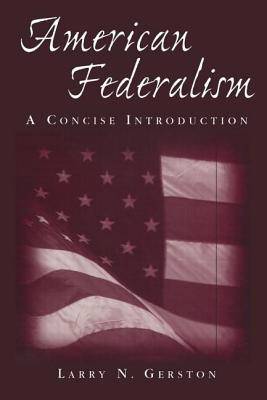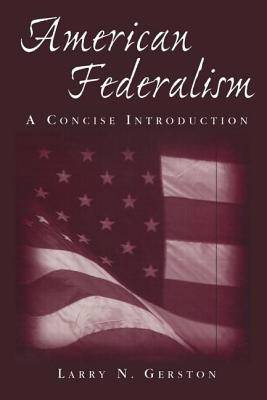
- Afhalen na 1 uur in een winkel met voorraad
- Gratis thuislevering in België vanaf € 30
- Ruim aanbod met 7 miljoen producten
- Afhalen na 1 uur in een winkel met voorraad
- Gratis thuislevering in België vanaf € 30
- Ruim aanbod met 7 miljoen producten
Zoeken
American Federalism: A Concise Introduction
A Concise Introduction
Larry N Gerston
Paperback | Engels
€ 106,95
+ 213 punten
Uitvoering
Omschrijving
Understanding federalism - the form of political organization that unites separate polities within an overarching political system so that all maintain their political integrity - is central to the study of democratic government in the United States. Yet, many political scientists treat federalism as a set of abstract principles or a maze of budgetary transfers with little connection to real political life. This concise and engaging book boils the discussion down to its essence: federalism is about power, specifically the tug for power among and within the various levels of government. Author Larry N. Gerston examines the historical and philosophical underpinnings of federalism; the various "change events" that have been involved in defining America's unique set of federal principles over time; and the vertical, horizontal, and international dimensions of federalism in the United States today. The result is a book examining the ways in which institutional political power is both diffused and concentrated in the United States.
Specificaties
Betrokkenen
- Auteur(s):
- Uitgeverij:
Inhoud
- Aantal bladzijden:
- 197
- Taal:
- Engels
Eigenschappen
- Productcode (EAN):
- 9780765616722
- Verschijningsdatum:
- 15/02/2007
- Uitvoering:
- Paperback
- Formaat:
- Trade paperback (VS)
- Afmetingen:
- 159 mm x 224 mm
- Gewicht:
- 272 g

Alleen bij Standaard Boekhandel
+ 213 punten op je klantenkaart van Standaard Boekhandel
Beoordelingen
We publiceren alleen reviews die voldoen aan de voorwaarden voor reviews. Bekijk onze voorwaarden voor reviews.











